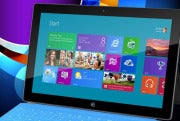 Selecting
the right router and what’s applicable for your network can be
difficult. It can depend on your ISP and the type of Broadband
(DSL/ADSL, Fiber, Cable or Satellite) connection you have; some can
behave differently than others. I hear this all the time and have been
often asked the same question - ‘What’s the best router for me’?
Selecting
the right router and what’s applicable for your network can be
difficult. It can depend on your ISP and the type of Broadband
(DSL/ADSL, Fiber, Cable or Satellite) connection you have; some can
behave differently than others. I hear this all the time and have been
often asked the same question - ‘What’s the best router for me’?I’ve recently purchased and set-up a new D-Link N Router to replace our old Linksys G Router as it was acting up. It took me a little while to buy, as I spent time researching my choice. I use Charter Communications (Internet Service Provider) and I’ve found out that Charter customers have had luck using either Linksys or D-Link routers. I have researched different forums and blogs to find out what other consumers have to say regarding the pros and cons of a variety of routers, you might want to consider doing the same before you buy; reading consumer reviews from reputable vendors are also beneficial. My new D-Link router is performing great and so far so good.
How complex is your wireless network environment? Before you buy anything, you need to find out how many wireless devices do you have. A Wireless device can be anything from a Laptop to an IPod, Tablets, Smart phone, Xbox, PS3, etc. If you’re likely to be doing any HD video streaming, you might consider a Dual Band N Router, this can operate on both the 2.4 GHz and 5GHz radio bands simultaneously, and double the available wireless bandwidth. A router that has this option provides load balancing, for instance you could set up your network to handle video streaming on one radio band, and use the other band for other simultaneous web activities (Instant messaging, Surfing, data uploading/downloading) avoiding any interference or collisions.
Routers have different types of Standards known as Standard 11n (N) that supports 5GHz band and Standard 11b and g (B/G) that supports 5GHz band technology? B/G is an older technology and nowadays N technology would be preferred as it is backwards compatible to B/G and will communicate to any B/G wireless devices. In order to make use of the highest router mode (N), your wireless devices will have to be compatible with N technology as well. However, your older B/G wireless devices will only communicate at the lowest Mode of your router, which is the B/G. The higher the standards used, the better your router will perform.
How large is your home and how many rooms do you have? You may wish to consider using an Access Point (AP), a router with Bridging or Repeating functionality. Make sure to read the technical details of the router to ensure that the router that you will be buying has this option. It’s best to download the PDF file available from the manufacturer’s site to view the specifications. The AP, Bridge or Repeater Router is designed for users looking to create a wireless network or to connect multiple wired devices to an existing wireless network. Expand your wireless network endlessly to cover large areas and improve performance.
Don’t forget the Internet Protocol Version 6 (IPV6) compatibility – Most modern routers will have this feature ready so that each IPV6 device in your network will comply with your router when it becomes effective. Internet Protocol Version 4 (IPV4) will be obsolete but not necessarily stop working. Your Network Cards and other technology devices will have to be IPV6 compliant in order for them to connect and work well with your router.
The wireless security feature of the router is also significant and plays a big role in your wireless network. Make sure that it supports WPA2 which is the highest network encryption available, WEP and WPA security have both been hacked and are not reliable security standards.
Other things to consider:
Will you need gigabit ports? Some routers have gigabit ethernet ports for faster transfer rate if you decide to do file sharing in your network. Your wired network devices must have gigabit network adapters to make use of the gigabit ports.
A Cloud feature will be great to have – Netgear has a ‘Ready Share Cloud‘ or ReadySHARE(R) USB Storage Access for file sharing. You’re not just getting a wireless router but a Cloud solution as well, all in one great package. You may also make use of the USB Port to share any USB devices from your network.
Parental Control - You may wish to restrict browsing on certain sites for minor ages of the family members.
File Transfer Protocol (FTP) - You may transfer, upload, download files by using an internet.
Hotspot - You may setup your network as a Wi-Fi Hotspot, this is most commonly use for Cafe’ restaurants.
Guest Zone - You may create a separate SSID (wireless network name) for your Guests to keep them isolated from your own SSID.
These are just a few great features that you might consider before buying your next router. Now, you decide and find out what’s the best router for you.










0 comments
Post a Comment